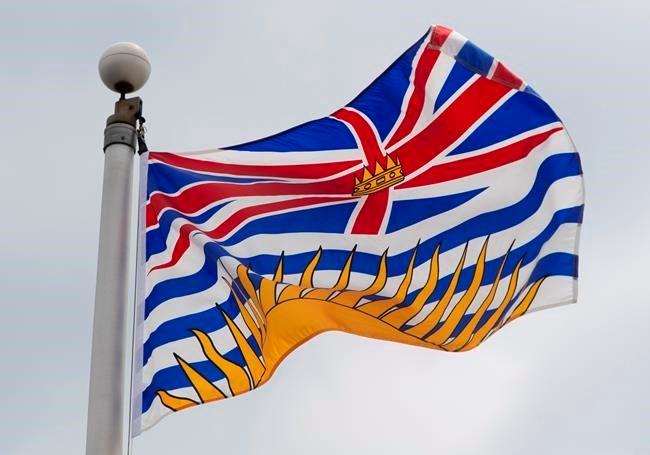VICTORIA — British Columbia's financial outlook is being hammered by the COVID-19 pandemic, but a partial recovery is on the horizon next year, says Finance Minister Carole James.
But James, who described herself as a realist Thursday, said B.C. remains a long way from rebuilding its economy to pre-COVID-19 levels.
The province's most recent financial numbers from April to June project an economic decline of 6.7 per cent this year, while the budget is forecast to post a deficit of almost $13 billion for the 2020-21 fiscal year, she said.
James said the COVID-19 pandemic has challenged and changed the province.
"Just as we're seeing globally and in Canada, B.C.'s economy and everyday lives of people and the businesses of our province have been seriously impacted," she said at a news conference.
"The impact of COVID-19 has touched on almost every area, as you can imagine — personal and business incomes, retail sales, purchases of fuel, the housing market, all of those have dropped compared to predictions in the budget in 2020."
Last month, James said B.C.'s final 2019-20 budget changed from a projected modest surplus to a deficit of $321 million in a matter of weeks with the arrival of COVID-19. She said B.C. is now expected to battle budget deficits for the next year and likely longer.
James said Thursday that revenue forecasts are $4.6 billion lower and expenses are $7.7 billion higher, largely due to the province's pandemic response.
Jas Johal, Opposition Liberal economic development critic, said the government has been too slow in responding to the economic devastation of the pandemic.
"Today's $12.8-billion deficit demands an immediate and robust economic recovery plan," he said. "Other provinces have introduced their plans in June and early July. We have seen nothing from the NDP government that fundamentally addresses the economic challenges moving forward."
James said she will provide details of the government's planned $1.5-billion economic recovery effort next week, but Johal said the money should have been flowing by now.
"That emergency funding should have been prioritized and out the door a long time ago," said Johal.
James said there were 149,600 fewer jobs in August than in February, when the government tabled its budget.
The area hardest hit by job losses was the wholesale and retail trade sectors, where jobs were down by 33,900 positions. The information, culture and recreation sector lost more than 25,000 jobs.
B.C.'s jobless rate in August was 10.7 per cent, compared to five per cent in February.
"It goes without saying that these are unprecedented times and these are times that are very hard to predict what's coming ahead," James said.
"We may see slower recovery because of a weaker global recovery. We may see more negative impact to households and to businesses. We may see future waves of the virus and that may have an impact."
But she said private sector economists are projecting B.C.'s economy is expected to rebound somewhat next year, posting economic growth of 5.2 per cent. James said the province has taken a more prudent approach, forecasting growth of three per cent in 2021.
This report by The Canadian Press was first published on Sept. 10, 2020.
Dirk Meissner, The Canadian Press
Note to readers: This is a corrected story. A previous version said that job declines in the wholesale and retail trade sectors was at 33.9 per cent and that the provincial government forecast a 5.2 per cent growth rate for 2021.



